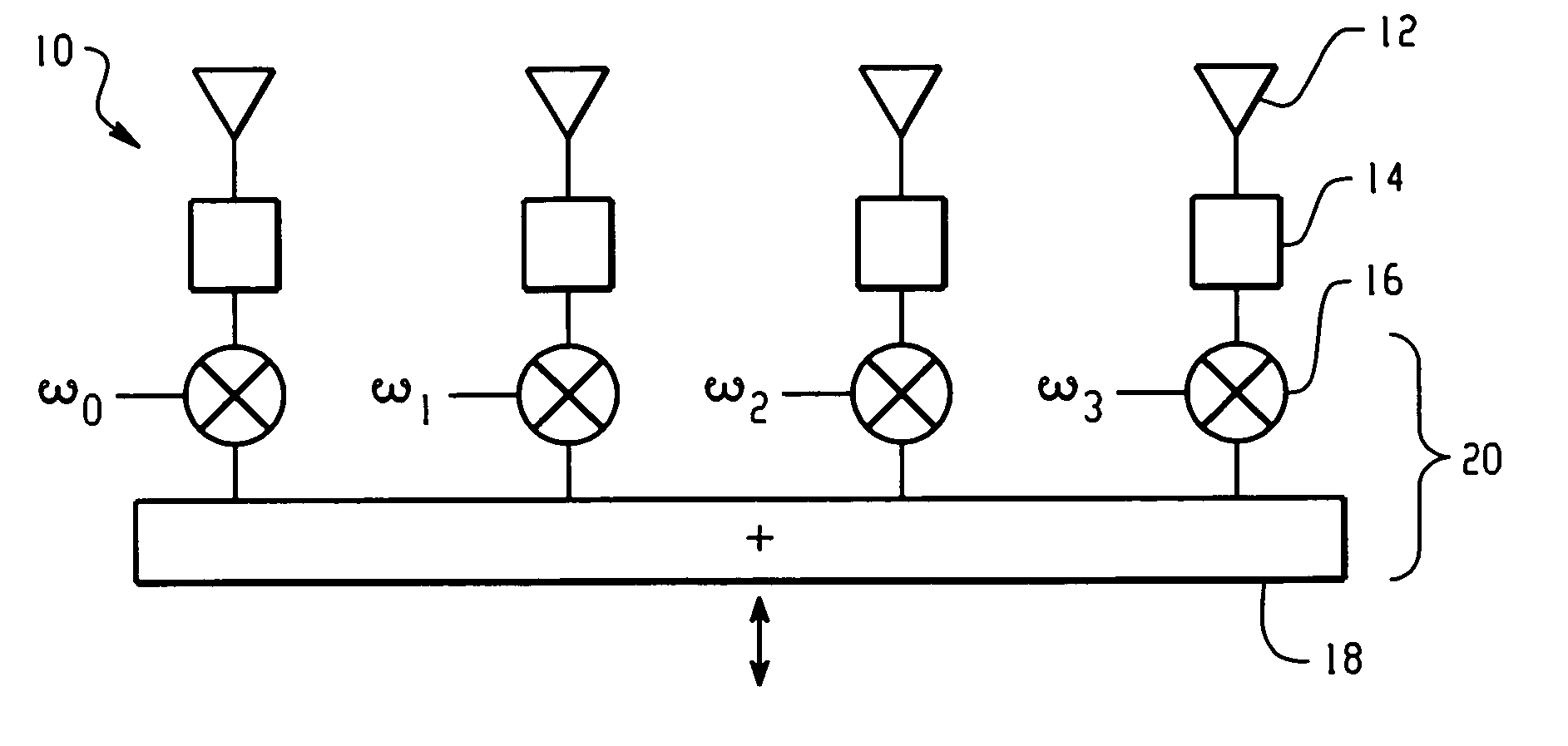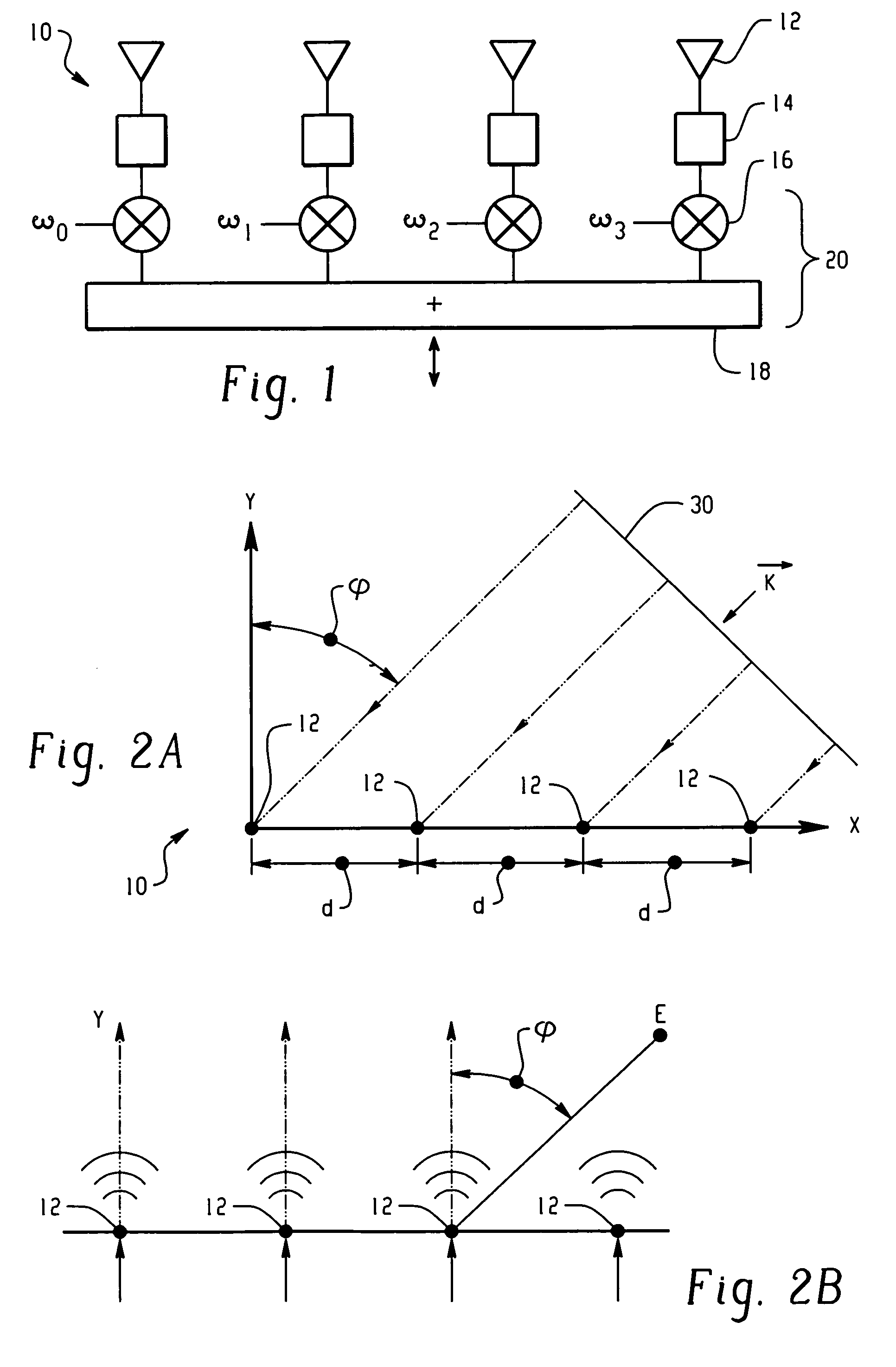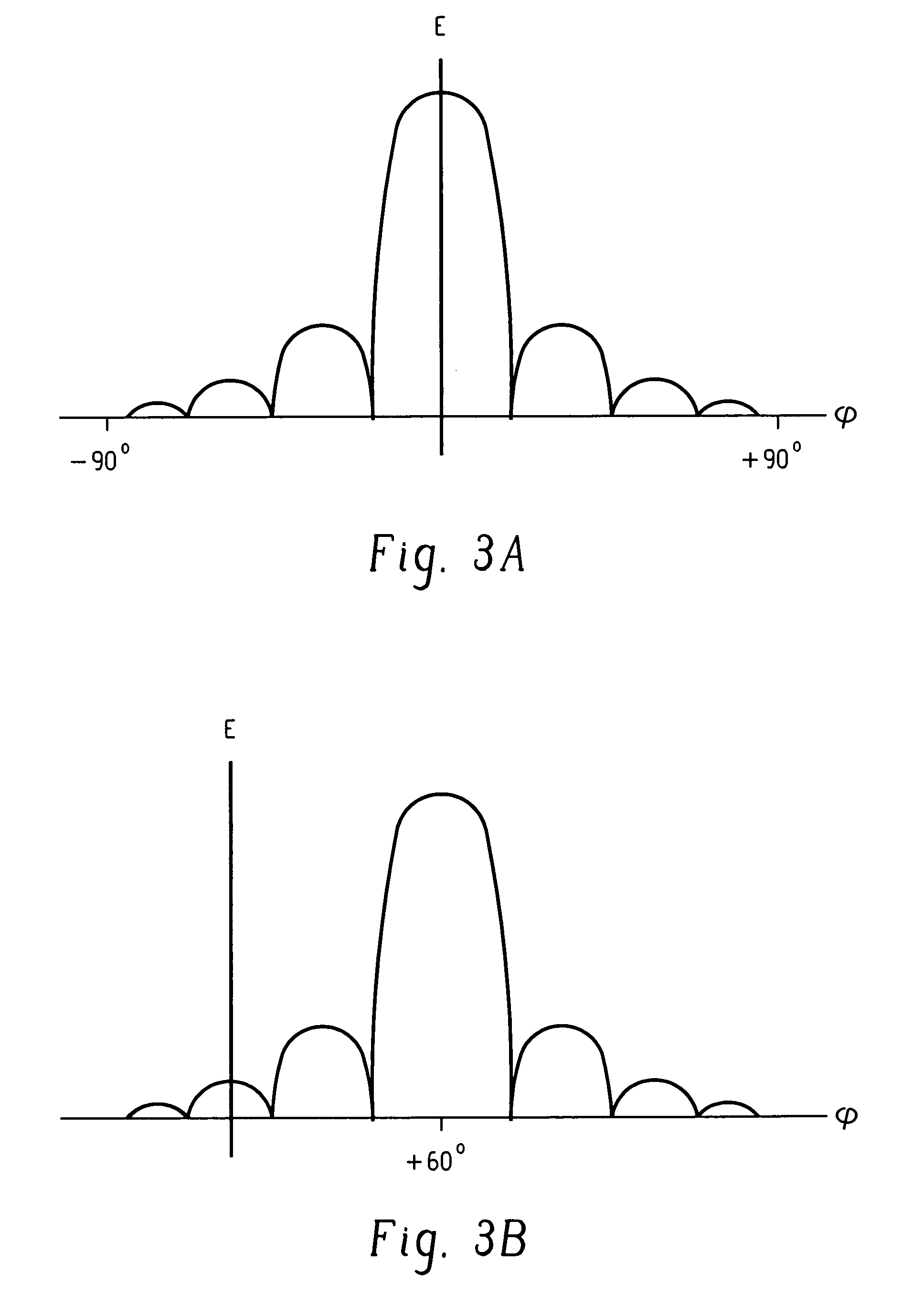Array beamforming with wide nulls
a beamforming array and null technology, applied in direction finders using radio waves, instruments, modulation, etc., can solve the problems of multipath interference, difficult and expensive to form a narrow beam, and become increasingly difficult to avoid interference between wireless clients
- Summary
- Abstract
- Description
- Claims
- Application Information
AI Technical Summary
Benefits of technology
Problems solved by technology
Method used
Image
Examples
Embodiment Construction
[0012]In the present invention, signal interference is avoided by the method and implementation of the present invention by steering wide, deep nulls in the direction of interference, e.g. multipath sources or interfering clients and steering rudimentary beams in the desired directions. By creating wide nulls and beams with the present invention, normal manufacturing methods suffice and the positional error of the array can be accommodated, and an uncalibrated antenna array can be employed. In this way, the expensive and time consuming steps of array calibration and testing can be eliminated, thereby considerably reducing expense and increasing efficiency.
[0013]The present invention uses a novel technique of subspace beamforming and wide-null forming using the nominal array manifold to compute suitable weighting factors, for the antenna elements in a steerable, directional antenna array. The present invention can be used with a one-dimensional linear array, or with a two-dimensional...
PUM
 Login to View More
Login to View More Abstract
Description
Claims
Application Information
 Login to View More
Login to View More - R&D
- Intellectual Property
- Life Sciences
- Materials
- Tech Scout
- Unparalleled Data Quality
- Higher Quality Content
- 60% Fewer Hallucinations
Browse by: Latest US Patents, China's latest patents, Technical Efficacy Thesaurus, Application Domain, Technology Topic, Popular Technical Reports.
© 2025 PatSnap. All rights reserved.Legal|Privacy policy|Modern Slavery Act Transparency Statement|Sitemap|About US| Contact US: help@patsnap.com



